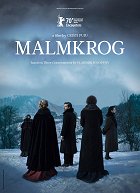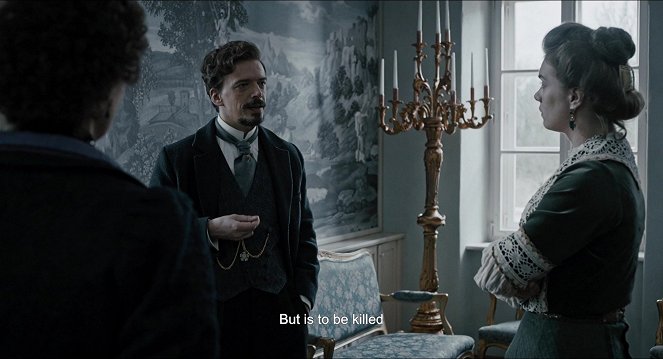Juonikuvaukset(1)
The guests who come to the mansion of aristocratic landowner and man of the world Nikolai over the Christmas holidays are hand-picked. Among them is a politician, a young countess and a general with his wife. They converse and dine – what a wonderful, much-missed way of life – indulge in parlour games and discuss the right form of authority in the face of political impotence as well as progress and morality, death and the Antichrist. As the debate becomes more heated, cultural differences become increasingly apparent and the mood grows tense. In the end, everyone will become a victim of his or her own discourse. Puiu is a man of extremes; every film is an exercise in aesthetics, plunging us into the depths of time. Continuing in the same vein, Malmkrog, which is based on a text by Russian philosopher Vladimir Solovyov, is a global journey through history and a tour de force of thought. Nevertheless, the current work stands out stylistically on account of its perfect mise en scène and the era's precise look, reinforcing the intellectual heights of the œuvre. A fascinating fresco that also delivers a razor-sharp criticism of our own times. (Berlinale)
(lisää)Arvostelut (2)
Five members of the upper crust meet in a large residence. For over three hours, they will discuss war, progress and the end of history (as the title refers to Solovyov’s philosophical treatise that inspired Puiu). They cannot be stopped by a serious illness, a coup attempt or the coming of the Antichrist. Regardless of how long their disputations last and how many steps they take, they can’t go far. They move in circles (Dante’s Inferno). Like the characters from Buñuel's The Discreet Charm of the Bourgeoisie, they are prisoners of their own intellectual worlds and ideas of an ideal society, but with little reflection of the external reality that is not only thought, but also lived. However, Puiu is more restrained than his Spanish counterpart in satirising snobs who indulge in their autotelic intellectual games while the old order collapses outside the windows. His slightly disdainful detachment from the self-centred aristocrats is shown less in the dialogue and more in how the actors react to certain lines and how, during long shots, the director inventively stages and frames the characters’ movements in the broken space, especially their interaction with the servants, who, in contrast to the main characters, are constantly busy and manage to achieve something through their actions. Malmkrog is a long, serious, intellectually rich film that is also in some way delightfully sadistic toward viewers. At the same time, however, it humorously reflects and disparages its own length, seriousness and intellectual richness so that, unlike its characters, it does not suffer from academic torpor. In fact, the opposite is true. It’s been a long time since I was drawn in by something so plotless (but also tremendously dynamic thanks to the conflict of various opinions and subworlds, as well as the direction of the actors and space). 90%
()
A great read. Sometime I might even watch the movie that was running over it. But it won't be any time soon. No need to be fooled by the enthusiastic cries that seeing Malmkrog is a must for every cinephile. I don't blame anyone if they think that, but at the same time I'll point out that there's a bit of Stockholm Syndrome a long screening will inevitably build up. Malmkrog is only as good as its themes are of interest to you, and the first hour, for example, where the moral justification for murder is discussed over and over again using primitively extreme examples (dead children, women being raped), can be irritating in its banality. Not to mention that whatever the talk here about some pure cinematic beauty in Malmkrog, it's all just a theater play with static cameras and a theatrical mise en scène where you can almost hear the actors counting off their steps. The film's greatest power comes when you see the subcutaneous swarming of the entire mansion, or rather its servants. There is a palpable tension here, at one point unexpectedly explosive.
()

